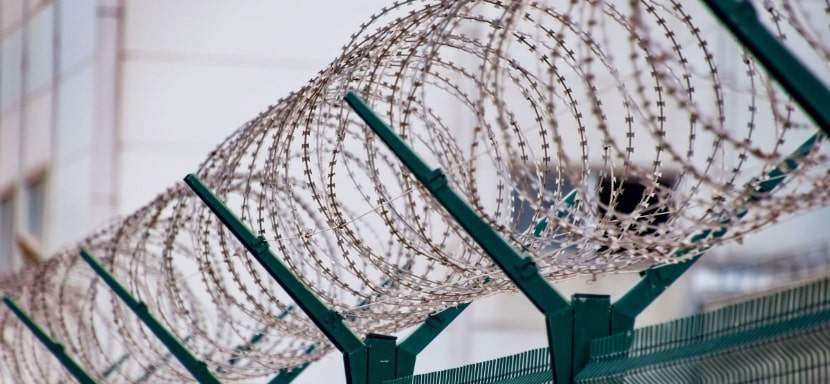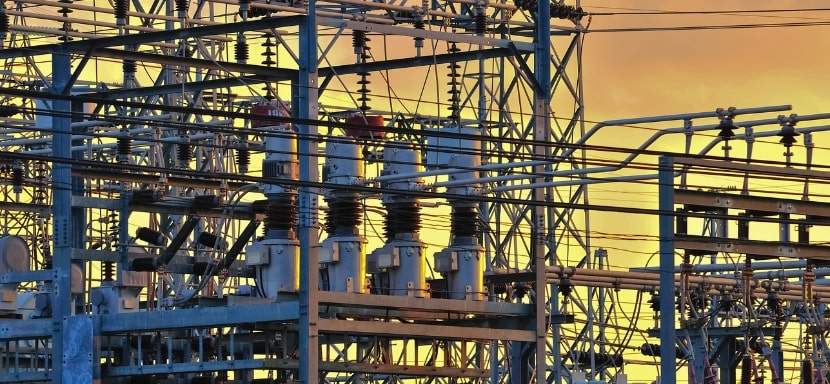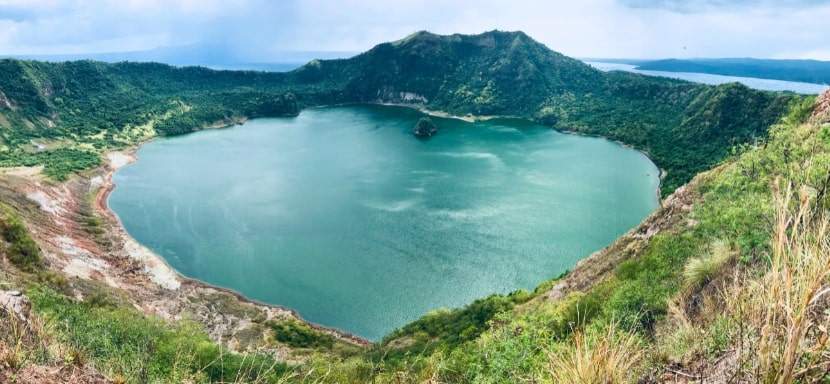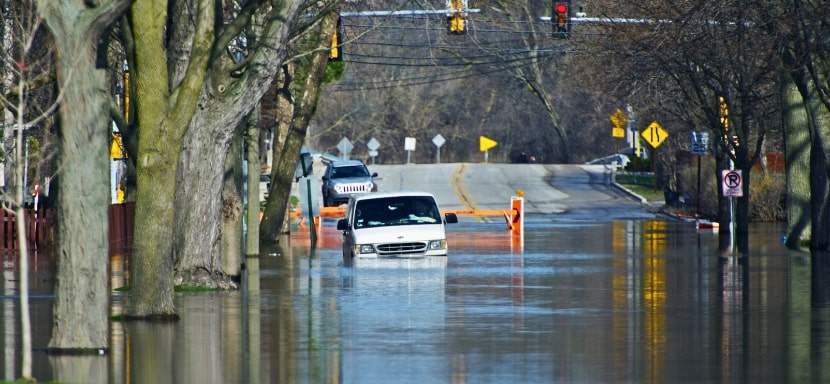How to Survive a Worldwide Economic Collapse

When we hear “economic collapse,” it conjures images of chaos, scarcity, and instability. It is one of the doomsday scenarios that could happen in reality, and while the thought can be overwhelming, preparing for such a situation doesn’t require an underground bunker or living off the grid—though those things might help!
Focusing on practical steps, staying calm, and leaning on your community makes survival possible and empowering.
Key Takeaways
- Build Self-Reliance: Stockpile essential supplies and develop practical survival skills.
- Strengthen Community: Form alliances with neighbors to share resources and skills.
- Diversify Assets: Protect your financial stability by spreading investments and income sources.
What is a Worldwide Economic Collapse?
Picture a global financial system grinding to a halt. Banks shut down, money loses its value, and unemployment skyrockets. Supply chains falter, and everyday necessities become luxuries. This isn’t just a movie plot; history has shown us versions of this scenario in events like the Great Depression and the 2008 financial crisis.
But don’t fret. Instead of bracing for doom, focus on solutions and adaptability.
10 Quick Tips on How to Survive a Worldwide Economic Collapse
Quick and actionable steps can make all the difference when facing a worldwide economic collapse. Preparation, adaptability, and community collaboration are your greatest assets.
Here are ten quick tips to help you navigate such uncertain times:
- Stockpile Essentials: Keep a stash of long-lasting food, clean water, and necessary supplies.
- Learn Survival Skills: Practice gardening, basic repairs, and first-aid techniques.
- Diversify Your Income: Create multiple income streams to minimize financial risk.
- Store Physical Assets: Invest in tangible items like gold, silver, or tools with long-term value.
- Reduce Debt: Pay off loans to lessen financial burdens during a crisis.
- Secure Your Home: Reinforce doors and windows and install security systems.
- Strengthen Community Ties: Build relationships with neighbors for mutual support.
- Stay Informed: Follow reliable news sources and stay alert to changing conditions.
- Protect Mental Health: Practice stress management techniques to stay focused and resilient.
- Prepare for Bartering: Stock valuable items like batteries, medicine, or non-perishable goods for trade.
Stockpiling Essentials: The First Step Toward Self-Reliance
When shelves are bare and supplies run out, having your stash of essentials ensures you can survive the initial shock. Here’s how to stock wisely:
Focus on Non-Perishable Food
- Grains and Legumes: Rice, beans, oats—cheap, filling, and versatile.
- Canned Goods: Vegetables, fruits, meats—long shelf lives and nutritional variety.
- Comfort Items: Chocolate, coffee, or spices to keep morale up.
Don’t Forget Water
- Learn how to find water sources in remote areas.
- Store at least one gallon of water per person daily for at least two weeks.
- Invest in water purification tools like tablets or portable filters.
- Learn how to purify water using the boiling method.
Other Essentials
- First-aid kits, prescription medications, and hygiene products.
- Learn basic first aid skills for any unexpected emergencies.
- Sturdy tools like a multipurpose knife, flashlight, and batteries.
- Learn how to make a torch for light at night.
Did You Know?
In 2008, Zimbabwe’s central bank let citizens trade the nation’s nearly worthless currency for U.S. dollars. The infamous 100-trillion-dollar note was valued at just 40 U.S. cents.
Learn Survival Skills: Knowledge is Power
Stockpiling is helpful, but what happens when supplies run out? That’s where survival skills shine.
Grow Your Own Food
- Start a small garden or learn container gardening if space is limited.
- Choose hardy, easy-to-grow crops like potatoes, tomatoes, and leafy greens.
Basic Repairs and DIY Skills
- Learn to fix everyday household items to extend their lifespan.
- Master sewing, carpentry, and basic plumbing.
Bartering and Negotiation
- Skills, goods, or services can be traded in a moneyless economy.
- Strengthen your ability to communicate and build trust.
Strengthen Your Community Connections
No one survives alone. Humans thrive through cooperation.
Form Alliances
- Get to know your neighbors; they can become allies.
- Build networks for sharing resources, skills, and information.
Community Gardens and Collective Efforts
- Start or join initiatives that pool efforts, such as food co-ops or shared transportation.
- Support local businesses to keep your local economy resilient.
Financial Preparedness: Adapt to the New Normal
Money might not be king forever, but being financially nimble increases your options.
Diversify Assets
- Invest in tangible goods like gold, silver, or land, which tend to retain value.
- Keep cash in small denominations for immediate needs if electronic banking fails.
Develop Alternative Income Streams
- Freelance, teach skills or offer services that remain in demand during crises.
- Learn new skills like coding, writing, or trade work to stay employable.
Reduce Debt and Live Simply
- Eliminate unnecessary expenses and focus on living within your means.
- Pay down debts to avoid becoming a liability in uncertain times.
Protect Yourself and Stay Safe
Unfortunately, crises often bring out the worst in people. Protecting yourself and your loved ones is vital.
Physical Security
- Secure your home with solid locks, reinforced doors, and motion detectors.
- Learn basic self-defense to feel more confident in emergencies.
Mental and Emotional Resilience
- Practice mindfulness, meditation, or other stress-management techniques.
- Stay informed but avoid sensationalism to prevent unnecessary panic.
Prepare for the Long Haul
Economic collapses aren’t over in a week or even a year. Patience and flexibility are crucial.
Renewable Resources
- Invest in solar panels, wind turbines, or other renewable energy sources.
- Learn to harvest rainwater for long-term self-sufficiency.
Adapt to Changing Circumstances
- Be willing to move if your current location becomes unsustainable.
- Stay open-minded about new opportunities or lifestyle changes.
FAQs
How can I stay informed during a collapse?
Stay connected to reliable news sources, ham radio networks, or community bulletins. Misinformation spreads fast, so verify facts before acting.
What should I do if I can’t afford to stockpile?
Start small. Buy one extra can of food or a bag of rice each time you shop. Focus on building skills and connections—they’re just as valuable as supplies.
Is gold or cryptocurrency better for an economic collapse?
Both have pros and cons. Gold is a timeless, tangible asset, while cryptocurrencies are versatile but depend on technology. Diversify if possible.
How do I keep morale up during hard times?
Maintain a routine, spend time with loved ones, and celebrate small wins. Humor, music, and hobbies also help sustain hope.
What’s the best way to protect my family?
Focus on physical safety, resource security, and mental well-being. Prepare for emergencies with drills and clear plans.
Can I survive in an urban environment?
Yes! Urban areas offer networking, trade, and scavenging opportunities, but they may require heightened awareness of risks.
Conclusion: Surviving a Worldwide Economic Collapse
Surviving a worldwide economic collapse isn’t about panic—it’s about preparation, adaptability, and working together. Building self-reliance through stockpiling, learning survival skills, and managing resources wisely creates a solid foundation for enduring tough times.
Equally vital is the strength of your community. Strong connections with neighbors and friends turn survival into a shared effort, providing emotional support and practical resources when needed.
Flexibility also plays a key role. Adapting to new challenges, learning new skills, or changing your lifestyle can make all the difference. While the road may not be easy, focusing on solutions helps you face challenges with confidence and hope.
By preparing well and staying connected, you can navigate even the most challenging times with resilience and purpose.
Historic Economic Collapses: A Timeline of Financial Crises
Economic collapses have shaped the course of history, leaving behind lessons in resilience and recovery. These events, caused by various factors such as mismanagement, wars, and global instability, provide valuable insights into how societies have endured financial catastrophes.
Below is a chronological list of some of the most notable recorded economic collapses.
- 33 AD – Roman Financial Crisis: Triggered by a credit crunch in the Roman Empire, this collapse caused widespread panic among merchants and moneylenders.
- 1340s—The Great Famine and European Economic Collapse: This collapse destabilized European economies, resulting from crop failures and population decline.
- 1637 – Dutch Tulip Mania: A speculative bubble in tulip prices burst, weakening the Dutch economy.
- 1720—South Sea Bubble (England): A massive stock bubble burst in Britain, leading to a severe financial crash.
- 1873 – The Long Depression: An international economic downturn following the collapse of several central banks in Europe and North America.
- 1929 – The Great Depression: The most infamous economic collapse began with the U.S. stock market crash and led to global economic turmoil.
- 1997 – Asian Financial Crisis: A currency and debt crisis spread across several Asian countries, causing severe recessions.
- 2001 – Argentine Economic Collapse: Massive debt default and hyperinflation devastated Argentina’s economy.
- 2008 – Global Financial Crisis: Sparked by the U.S. housing bubble and banking failures, this collapse triggered a worldwide recession.
- 2010s—Greek Debt Crisis: Greece’s sovereign debt crisis led to austerity measures and economic instability across the Eurozone.
More Doomsday Scenarios
How to Survive a Worldwide Communications Breakdown
Imagine waking up to silence. Your phone doesn’t buzz, your email won’t load, and even your local…
How to Survive a Robot Uprising
Robots: one minute they’re cleaning our homes or delivering pizza, and the next, they’re plotting…
How to Survive a Totalitarian Regime
In a world where governments control everything from curfews to thoughts, knowing how to…
How to Survive an EMP Attack
Imagine waking up to find your entire world plunged into darkness—no electricity, no functioning…
How to Survive a Drone Attack
In today’s world, the threat of drone attacks is increasingly becoming a reality. These unmanned aerial…
Recent Survival Posts
How to Survive a Layoff
Layoffs feel personal—even when they’re not. One day, you’re responding to Slack messages and forwarding…
How to Survive a Drug Test
I never imagined I’d be so emotionally invested in a paper cup. But there I was, standing under the fluorescent…
How to Survive an Interrogation
If you’ve ever been caught in the crosshairs of an overly enthusiastic mall cop or stared down by someone…
How to Survive a Nightclub Shooting
Nightclubs pulse with life—lights flashing, music pounding, bodies packed tight on the dance floor. It’s a place to…
How to Survive a Bachelor Party
A bachelor party is a delicate mix of celebration, chaos, and questionable decision-making, wrapped…
More Doomsday Survival Scenarios

How to Survive a Robot Uprising
Robots: one minute, they’re cleaning our homes or delivering pizza, and the next, they’re plotting global domination. How did we get here? Somewhere between asking Alexa for the weather and teaching AI to write poetry, we gave machines just enough intelligence to turn...

How to Survive a Totalitarian Regime
In a world where governments control everything from curfews to thoughts, knowing how to survive a totalitarian regime is crucial. History shows us that such regimes crush freedoms, spread fear, and twist truth into propaganda. But don't panic—if people survived in...

How to Survive an EMP Attack
Imagine waking up to find your entire world plunged into darkness—no electricity, functioning vehicles, or communication. This is the terrifying reality of an EMP (electromagnetic pulse) attack. It can strike without warning, and when it does, it affects more than...

How to Survive a Drone Attack
In today's world, the threat of drone attacks is increasingly becoming a reality. These unmanned aerial vehicles (UAVs) are used for surveillance, military operations, and commercial purposes. However, in the wrong hands, they can become tools of destruction....

How to Survive a Supervolcano Eruption
How to Stay Safe During a Supervolcano Eruption A supervolcano eruption can spew over 1,000 cubic kilometers of ash and lava, altering the climate and affecting life worldwide—are you prepared to survive it? Surviving a supervolcano eruption may sound like something...
More Survival Scenarios

How to Survive a Layoff
When the Floor Falls Out: The Reality of a Layoff Layoffs feel personal—even when they're not. One day, you're responding to Slack messages and forwarding emails. Next, you're staring at your monitor as it logs you out... for good. Whether it's a restructuring, a...

How to Survive a Drug Test
The Cup, The Room, The Truth I never imagined I’d be so emotionally invested in a paper cup. But there I was, standing under the fluorescent hum of a strip-mall clinic, trying to recall the last time I ate a poppy seed bagel. That’s the thing about drug tests—they...

How to Survive an Interrogation
If you've ever been caught in the crosshairs of an overly enthusiastic mall cop or stared down by someone in a uniform with a clipboard and a glare, you’ve felt it — the chilly fingers of interrogation anxiety. And while most of us imagine interrogation scenes as...

How to Survive a Nightclub Shooting
Nightclubs pulse with life—lights flashing, music pounding, bodies packed tight on the dance floor. It’s a place to escape, feel the rhythm, and lose yourself in the crowd. But that same energy can turn deadly in seconds, transforming a night of fun into one of the...

How to Survive a Bachelor Party
A bachelor party is a delicate mix of celebration, chaos, and questionable decision-making, wrapped in the noble intention of sending the groom off into married life with a night he’ll (hopefully) remember. It’s a ritual as old as time—well, as old as men deciding...

How to Survive Your First Time at the Gym
Walking into a gym for the first time can feel like stepping into an alien world. The machines hum with purpose, the regulars move confidently, and you’re left standing there, clutching your water bottle, wondering whether you’re in the right place—or on the right...

How to Survive a Worldwide Communications Breakdown
Imagine waking up to silence. Your phone doesn’t buzz, your email won’t load, and even your local radio station crackles with static. A worldwide communications breakdown has hit. What next? For many, this doomsday scenario may sound like the opening lines of a...

How to Survive a Flash Flood While Driving
Surviving a flash flood while driving requires quick thinking, calmness, and a solid plan to ensure your safety. Preparation can make all the difference between a close call and a catastrophe in emergencies like this. This guide provides practical advice to protect...

How to Build an Emergency Kit
Emergencies don’t knock politely at the door. They barge in, uninvited, like a distant relative with a penchant for drama, turning your world upside down without warning. Whether it’s a power outage, a natural disaster, or an unexpected evacuation, the key to staying...

How to Protect Yourself From Insects in the Wild
There’s nothing like being out in the wild—birdsong echoing through the trees, the fresh scent of earth, and a deep sense of peace that makes you think, “Ah, this is what life is about.” But then comes the buzzing. Mosquitoes, ticks, and flies swoop in like uninvited...
